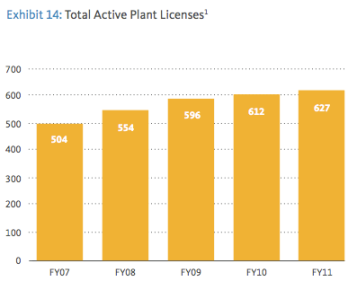Last month the University of California intervened in a high stakes U.S. Supreme Court case on the side of the agribusiness giant Monsanto Company by filing an amicus brief stating that the university would be harmed materially if Monsanto doesn’t prevail.
On the receiving end of UC’s legal argument is Vernon Bowman, a 75 year-old grain farmer from southern Indiana who has been battling Monsanto in court for several years now. It was already a David v. Goliath kind of fight, pitting an elderly guy in overalls against a global corporation with a bottomless pocket for legal expenses; the entry of UC into the court’s deliberations makes that two Goliaths.
Surprised the UC would make such pro-privatization arguments? You shouldn’t be.
The University of California is a behemoth in the biotech industry, and behaves more like a for-profit corporation such as Monsanto, than a public college with a broadly social mission when it comes to research and technology. UC owns more patents than any other university in the world. In fact UC owns so many patents, and files for so many new applications each year, that only a few major corporations rank above it in the yearly quest to monopolize new ideas and creations.
Since 2007 UC has pulled in about $100 million annually from royalty and fee income on these properties, and another $20 million from settlements with those who infringe on UC’s patents. Among UC’s most lucrative patents are GMOs modifying several kinds of strawberries, a citrus fruit, and a patent for recombinant DNA used to make somatotropin, the bovine growth hormone used in industrial cattle farming.

Total plant licenses issued by UC to biotech companies, including Monsanto. Many of UC’s patented plant products involve transgenic manipulation of food crops. (Source: UC “Technology Transfer Annual Report, 2011.”)
UC spends about $28 million each year employing a team a outside lawyers to manage its intellectual property portfolio. Most of their work involves enforcement of patent infringement claims against companies like Monsanto.
No comments:
Post a Comment